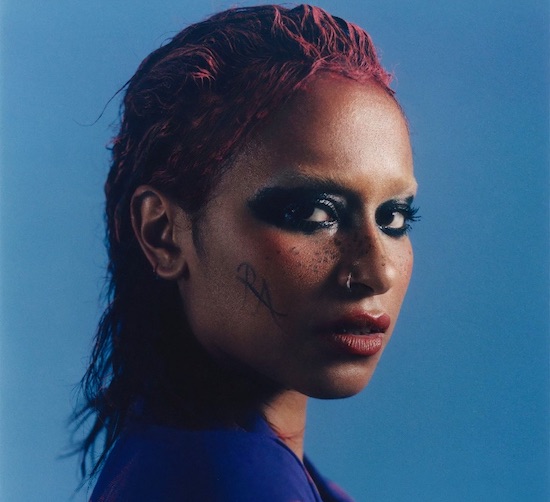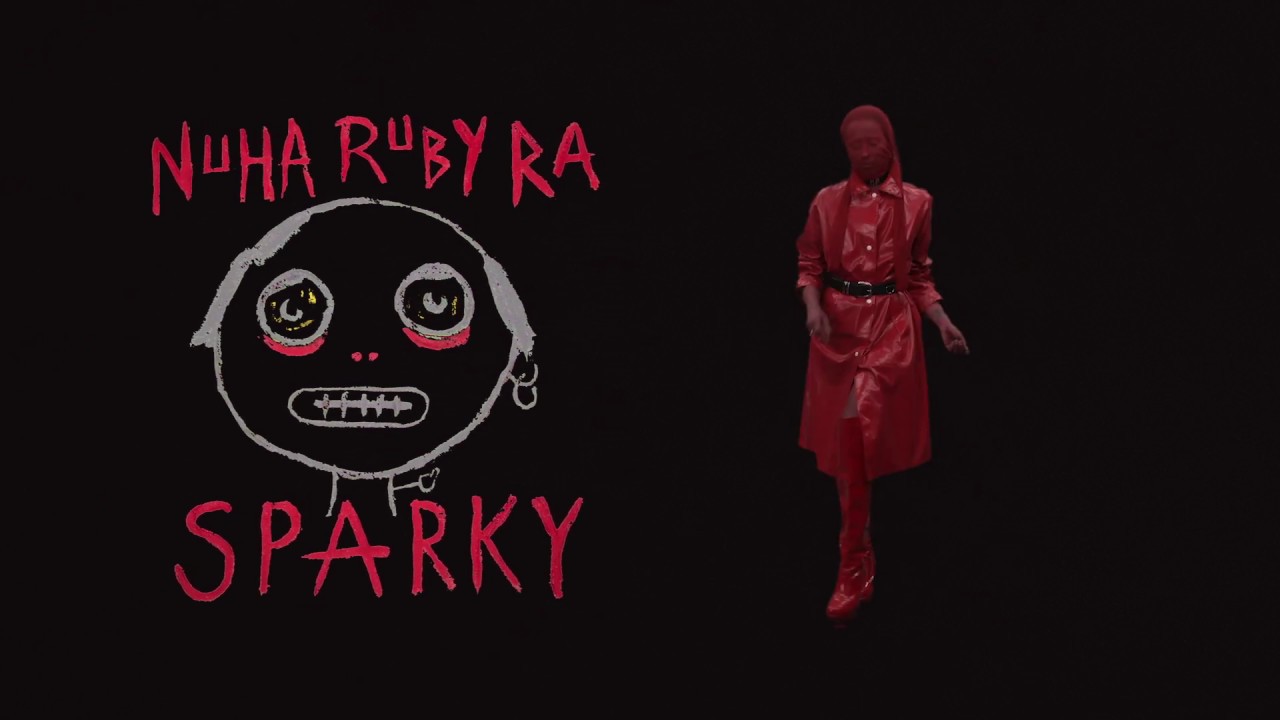For Nuha Ruby Ra, breaking norms is a way to move forward. To transgress and to progress. Resistance and creation are folded into the cultures of punk. To see a boundary not as a warning but an invitation to smash, break, destroy, and move through is as central a tenet to it as the DIY ethos that singles out an artist as a part of the scene. Already compared to the likes of Björk and Skunk Anansie, the Bedford-born and London-based artist finds herself in opposition to many things in How To Move – convention, sensuality, misery, vexation – and transforms it all right in front of us. A punk, experimental, do-it-yourelf approach to moving through things.
Opener ‘Intro’ unfolds like a war cry. Ra’s echoic chanting and the bellowing drumline act as a procession into the rest of How To Move. She’s going into battle here, as the ominous tone suggests, but the manic reverberations of the track lay a larger foundation for the incaution and conviction of her sound. Songs bump and trickle and slip into each other, all whilst maintaining a directness that comes to a head on final track ‘Cruel Ending’.
Second track ‘Cruel’ has this quiet animosity to it, a combination of exhaustion, aggression and frustration that releases in the rumbling and crashing of cymbals and snares. Nuha Ruby Ra fuels it with her vocals too. Lyrics become treacle-like, running dark and languid across the instrumentation, each word dragged across blooming guitar riffs and discordant synths. It’s hazy, mesmeric – a “cool mess” as she puts it herself. ‘Erase Me’ warps a chirpy guitar line into a shoegazing ballad that acts at one moment as a declaration (“the feeling when you finally leave, it’s so heavy”) and at another, an admonition of desire (“I hide my addictions well, I keep my addictions to myself”).
Ruby Ra’s desire to rebel drives the experimentation on this record, defying not only the authority of convention but also the authority of her own self. Lyrics seem to want to come to blows with each other on How To Move. The indecisive cycling between “Erase Me… Erase Me… Don’t Erase…” sounds less like the direct address that populates the record and more like a surrender to the frustration of pendulum swings between anticipation, anxiety, and fulfilment. It’s enough to want to disappear completely.
There’s a staunchly different approach on the single ‘Sparky’, which bubbles with Ra’s confidence and bravado. It takes a lot of it to perform lines like, “I’d like to think you feel like you’re in the presence of an angel when you lay eyes on me” to one person, let alone a whole audience of listeners. She even parodies her own drawn out, multisyllabic vocals on other tracks when she repeats “Do you like when I talk to you like this?”. She’s fully in control of her prowess here, delivering what feels like the most controlled and most careful song on the EP. There’s no back and forth – she knows who she is here, even if it’s only role play. The same anxieties that haunt her songwriting still remain (she also repeats the same line, “Get your words out my head” on ‘Erase Me’) but the undeviating performance gives it a velocity that the other song can’t match. She doesn’t meander over the instruments here, making a pageant of her grief, she grooves on it – she moves.
‘At The Canyon’s Edge’ teases a harmony that the rest of the EP fights against, with Ruby Ra’s vocals laying between a tamer drumline and the opaque mystery of a saxophone. But still the need to transgress peeks through as the interlude is dominated by sound design that glitches and scratches at the song. On ‘Run Run’, she stabs at the track, poking and provoking before moving into a drawl, the guitar and the drums keeping pace with the slow procession of her words. A terrifying vocal riff threatens to kill it dead, before returning more chaotic than before, ‘Run Run’ at once being a march, a sprint, and a series of “small steps in the wrong direction”.
Even with the gothic keys playing in the background, ‘Cruel Ending’ carries an odd sanguinity that isn’t present in the highs of ‘Sparky’ or the lows of ‘Run Run’. It’s not vehemently defiant or audaciously dominant, it just is. And there are no vocals on this track too, everything she has to say, shout, cry, or scream has been said, shouted, cried and screamed. We’re left only with an organ that haunts the EP, loiters past the point where it feels like the song should end.
How To Move could be an unfinished sentence: How to move with, on, to, forward, backward, me, you. The many directions for movement speak to both the unfolding possibilities that this EP digs for in its experimentation but also the deadening anxiety of being stuck between states, between emotions, frustrations, and fulfilments. But Nuha Ruby Ra has given all she can here, all avenues have been assessed, all demons exorcised. The only thing left to do is learn how to move.



